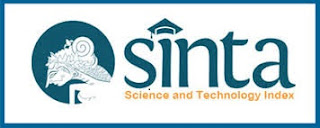Sufism and the Urban Society's Economy: Study of the Economic Dimensions of the Tarekat Siddiqiyah In Indonesia
DOI:
https://doi.org/10.32678/alqalam.v39i2.6916Keywords:
Tarekat Siddiqiyah, Economy, Social, PoliticsAbstract
Tarekat is often regarded as the decline of Islam. With his teachings zuhud, poor, and tawakal are considered activities of the tarekat from worldly life so that the life they live is fatalistic and is like the world. Some of the interesting phenomena of the Tarekat Shiddiqiyah can be seen from the economic behavior of its adherents, especially in developing business units that can support the increasingly rapid development of the tarekat in Indonesia. Therefore, the author is very interested in researching the tarekat. To answer that, the writer formulates the problem: how is business development in the Tarekat Shiddiqiyah? In conducting the research, the author uses qualitative research methods with a phenomenological approach. The selection of organizations is based on the Tarekat Shiddiqiyah in Indonesia as the object of research on phenomena and information on groups with their characteristics or characteristics relevant to the problem to be studied, namely the business of the tarekat Shiddiqiyah. The results of this study indicate that this phenomenon can be reached because this tarekat has its uniqueness, especially from the aspect of its teachings and views on world life, which are different from other tarekat with his teachings, his work in education, society, politics, and economics.
Downloads
References
A’dam, S. (2011). Etos Ekonomi Kaum Tarekat Shiddiqiyyah”, Al-Iqtishad: 3(2)
al Mujtaba, M. (2013). Keunikan Thiriqoh Shiddiqiyyah, Jombang: Al-Ikhwan.
Arif, M. (2019). “Tasawuf Kebangsaan: Konstruksi Nasionalisme Tarekat Shiddiqiyyah Ploso Jombang Jawa Timur’, Proceeding: The 1st FaqihAsy’ari Islamic Institute International Conference 1 (2)
Asy’ari, S. I. (1993). Sosiologi Kota dan Desa, Surabaya: Usaha Nasional, 1993.
Aulfala, Z. A. (2016). “zikir Kautsaran Masyarakat Tarekat Shiddiqiyyah di Kelurahan Kedungpane Mijen Semarang (Studi Living Hadist)”, Semarang: UIN Walisongo.
Bruinessen, M. V. (1995). Kitab Kuning, Pesantren dan Tarekat, Bandung: Mizan.
Dewi, N. R. S. (2020). “Tasawuf dan Perubahan Sosial: Kajian Tokoh Umar bin Abdul”, Rusydiah: Jurnal Pemikiran Islam, 1 (1).
Dodi, L. (2018). “Antara Spiritualitas dan Realitas Tarekat Shiddiqiyyah dalam Bingkai Fenomenologi Annemarie Schimmel”, Prosiding Nasional, 1 (1)
Huda, S. (2008). Tasawuf Kultural Fenomena Shalawat Wahidiyah, Yogyakarta: LKiS.
Indriawati, T. (2022). "Mengenal Tarekat Shiddiqiyyah: Aliran Tasawuf dari Jombang",https://www.kompas.com/stori/read/2022/07/07/222659279/mengenal-tarekat-shiddiqiyyah-aliran-tasawuf-dari-jombang?page=all.
Jalil, A. (2022). “Mengenal Tarekat Shiddiqiyyah Jombang; Sejarah, Doktrin, & Tujuannya" https://www.solopos.com/mengenal-tarekat-shiddiqiyyah-jombang-sejarah-doktrin-tujuannya-1362360.
Kartodirdjo, S. (1984). Pemberontakan Petani Banten 1888, Jakarta: Pustaka Jaya.
Kilasjatim.com. (2022). “Hotel Horison Yusro Klaim Sebagai Hotel Berbasis Syariah di Jombang”, https://kilasjatim.com/hotel-horison-yusro-klaim-sebagai-hotel-berbasis-syariah-di-jombang/
Mu’thi, M. M. (2000). Metode Khusyu’, Jombang: IRRMMQM.
Mu’thi. M. M. (1992). Informasi tentang Shiddiqiyyah Jombang: YPS.
Mubarak, M. A. (2019). “Konsep Etos Kerja Wirausaha Pondok Pesantren Majma’al Bahrain Shiddiqiyyah Di Ploso Jombang”, Skripsi diajukan untuk UIN Sunan Ampel Surabaya.
Munandar, S. A. Mursalat. (2019). ”Akuntabilitas Manajemen Pemberdayaan Pendidikan: Studi Pada Pesantren Tarekat Al Idrisiyyah Tasikmalaya”, Jurnal MD. 5 (1).
Munir, M. (2013). “Fenomena Bisnis di Komunitas Tarekat Shiddiyah Jombang “, dalam Buku, Mozaik Riset Ekonomi Islam, Malang: Maliki Press.
Munir, M. (2015). Semangat Kapitalisme dalam Dunia Tarekat, Malang: CV. Cita Intrans Selaras.
Nasirin, M. K. Muhammad Z. M. A, Mohammad H. H. (2021). “Mplementasi Dakwah Ekonomi Umat Di Pondok Pesantren Tarikat Shiddiqiyyah”, Jurnal Education and development Institut Pendidikan Tapanuli Selata, 9(2)
Nilyati. (2015). “Peranan Tasawuf Dalam Kehidupan Modern”, TAJDID, XIV (1)
NUonline. (2022). “Jombang Bangun Hotel Berbintang Bernuansa Pesantren”, https://nu.or.id/warta/jombang-bangun-hotel-berbintang-bernuansa-pesantren-DZcbJ
Organisasi Shiddiqiyyah. (2015). Sejarah Thoriqoh Shiddiqiyyah Fase Pertama (Kelahiran Kembali Nama Thoriqoh Shiddiqiyyah, Jombang: Organisasi Jombang.
Purnamasari, N. I. (2018). “Tasawuf ‘Amali Sebagai Model Tasawuf Sosial”, Mukammil: Jurnal Kajian Keislaman, 1 (2)
Riyadi, A. (2014) “Tarekat Sebagai Organisasi Tasawuf (Melacak Peran Tarekat Dalam Perkembangan Dakwah Islamiyah”, Jurnal at-Taqaddum, 6(2)
Shodiq, Muhammad. (2016). Tarekat Shiddiqiyyah di Tengah Masyarakat Urban Surabaya, Surabaya: Pustaka Idea.
Shulthoni, M., et al, (2011). “Bisnis Kaum Santri: Studi Kegiatan Bisnis Komunitas Tarekat Qadiriyah Naqsyabandiyah Pekalongan”, Jurnal Penelitian, 8(1).
Suteja. (2016). Sufisme Lokal Mencari Akar Tradisi Tasawuf Indonesia, Cirebon: Cirebon Publishing.
Tohir, M. N. (2012).Menjelajahi Eksistensi Tasawuf, Jakarta: as-Salam Sejahtera.
Turmudi, E. (2004). Perselingkuhan Kiai dan Kekuasaan, Yogyakarta: LKiS.
Downloads
Published
Versions
- 2022-12-31 (3)
- 2022-12-28 (2)
- 2022-12-31 (1)
Issue
Section
License
Copyright (c) 2022 Siswoyo Aris Munandar

This work is licensed under a Creative Commons Attribution-NonCommercial 4.0 International License.













